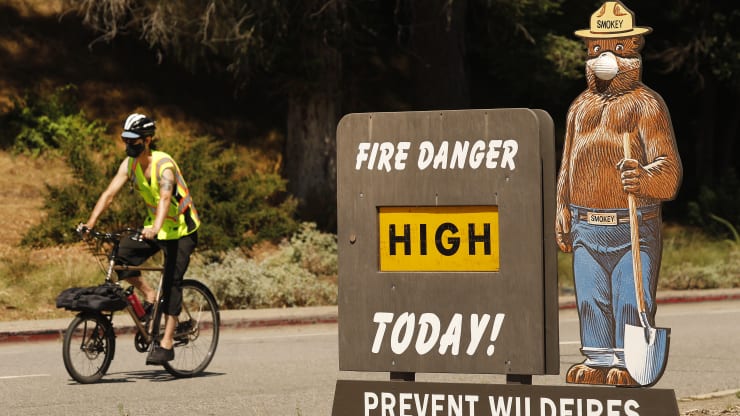Heat Wave Scorches US
- Another heat record
- Las Vegas heat wave
Heat wave scorches parts of U.S. and India; Siberia experiences record high temperatures

Parts of the U.S. are under excessive heat warnings as a heat wave threatens to send temperatures into the triple digits over the next few days.
Some states in the Northeast are already boiling, including Burlington, Vermont, which hit 95 degrees Fahrenheit this week after experiencing snow just a couple weeks ago, as well as upstate New York.
In the West, cities including Phoenix, Fresno and Las Vegas are under excessive heat warnings with expected highs of more than 100 degrees.
It’s not just the U.S. facing staggering temperatures. Montreal on Wednesday had its second hottest day on record with temperatures reaching 98 degrees.
India is also struggling with scorching temperatures that reached 118 degrees in the capital New Delhi this week and 122 degrees in Rajasthan, a state in northern India. The heat adds pressure on the country as it struggles to reopen during the coronavirus pandemic and faces a massive locust invasion.
2019 was the second-hottest year ever, capping off the hottest decade in recorded history as Earth grapples with climate change. Six of the warmest years on record occurred during the past decade.
Given the alarming rate of global warming, 2020 will likely be among the five hottest years on record, according to scientists from the National Centers for Environmental Information.
Siberia, one of the coldest regions in the world, experienced record-breaking heat this week with highs reaching over 80 degrees versus the historic average of 59 degrees.
The heatwave in Siberia raises major concerns over devastating wildfires breaking out this summer as climate change accelerates permafrost melt in much of the Arctic region.
Russia averaged nearly 11 degrees above average temperatures January to April this year — the largest anomaly ever seen in any country’s national average during that time period, according to Berkeley Earth lead scientist Robert Rohde.
Mika Rantanen, a researcher at the Finnish Meteorological Institute, said the heat has serious consequences for earlier Arctic sea ice melt and a more destructive forest fire season.
“Siberia has not been warm only during this week, but the whole 2020 so far has been anomalously warm in these areas,” Rantanen said.

